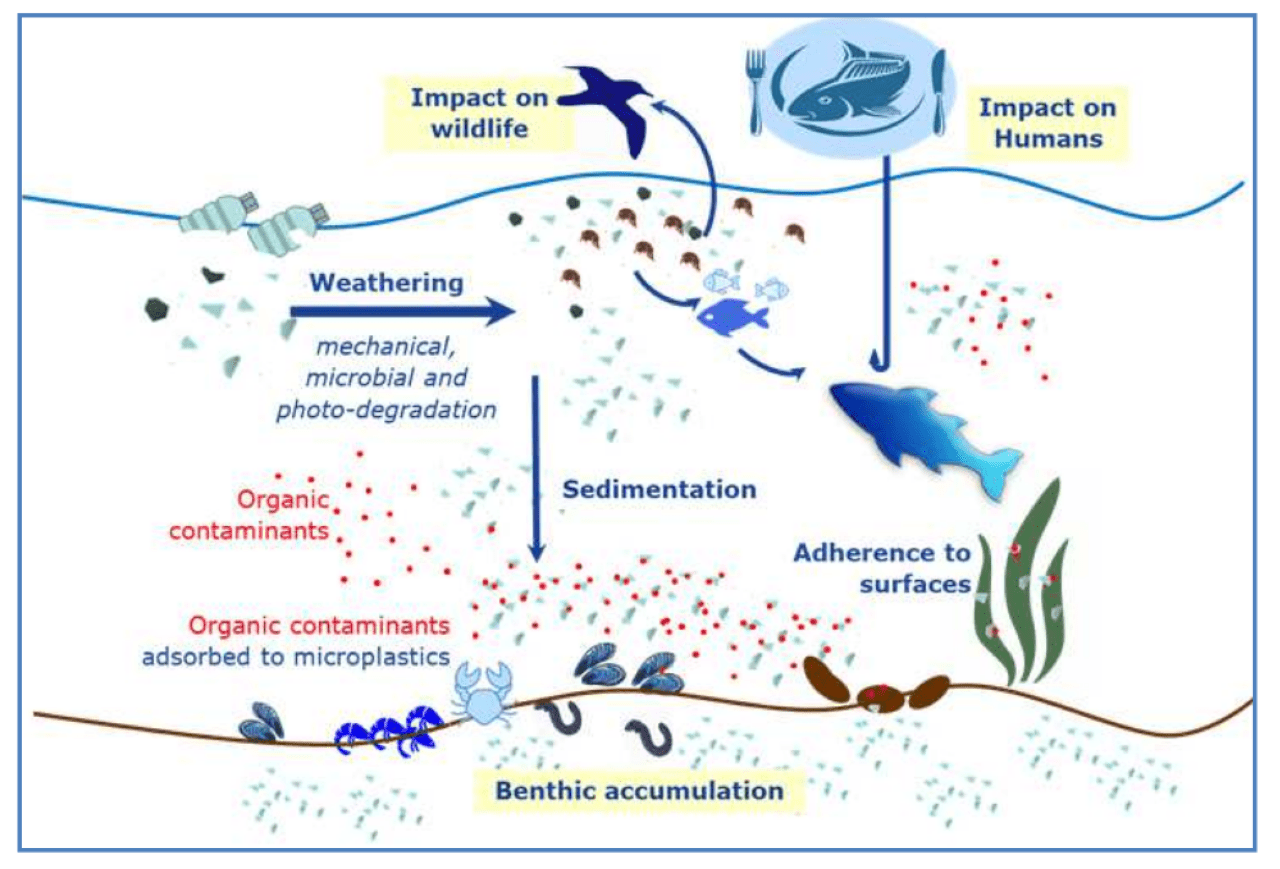Ottawa/Brussels, 2 May 2024
The fourth session of the Intergovernmental Negotiating Committee on Plastic Pollution (INC-4) was held from 23 to 29 April in Ottawa, Canada. Organised under the auspices of the United Nations, the Committee’s goal is to conclude an international treaty on plastic pollution by the end of the year. The Belgian presidency and the European Union supported an ambitious position covering the entire plastic life cycle and limiting the use of chemicals of concern.
Plastic pollution: a global issue
The fast-increasing plastic pollution has become a global environmental and health problem. Hundreds of millions of tonnes of plastic are produced around the world every year, accumulating all around us. Plastic waste obstructs waterways, forms artificial islands in oceans, and stifles biodiversity both at sea and on land. The chemicals they contain penetrate the soil, watercourses, groundwater, and even our human bodies, as plastic particles have been found in the placenta, breast milk and human blood.
Towards a legally binding international agreement
Against this backdrop, in March 2022, the United Nations Environment Assembly (UNEA) mandated an Intergovernmental Negotiating Committee (INC) to develop a legally binding international agreement on plastic pollution, including in the marine environment. The Committee began its work in December 2022 (INC-1). The Ottawa meeting is the fourth and penultimate round of five sessions of work by the INC, which aims to conclude negotiations in November 2024, at a final round of negotiations (INC-5) to be held in Busan, Republic of Korea.
The presidency of the Council of the European Union plays a key role at United Nations summits and conferences. Through its action, it must coordinate between EU member states and must enable the Union to effectively convey its environmental ambitions at the international level.
Since 2022, Belgium has been a member, along with the EU, of the High Ambition Coalition (HAC), a group of 66 countries committed to adopting an ambitious and legally binding treaty, based on a global and circular approach, to put an end to plastic pollution by 2040. Along these lines, at INC-4, the presidency and the European Union called for a “paradigm shift” to achieve a strong and sustainable agreement which covers the full life cycle of plastics and is paving the way for tomorrow’s circular economy.
The presidency in Ottawa to meet this challenge
During the INC-4 session, delegations worked on a revised draft text of the future instrument, which was compiled by the Secretariat on the basis of previous sessions’ discussions. Two contact groups were formed with the aim of making progress on streamlining the proposed text. After considering the positions of all the Committee’s members and streamlining the revised draft text, textual negotiations took place on a number of key measures, such as primary plastic polymer production, product design, Extended Producer Responsibility (EPR), fishing gear, the relevance of National Plans for implementation, and resource mobilization. This resulted in a consolidated text capturing the views of all the members, including the priorities of the EU and its member states. This text will be the basis for the next session of negotiations in Busan, in November 2024.
Nonetheless, much remains to be achieved to reduce the gaps in understanding and bridge the differences over the scope and purpose of the future treaty before potentially landing this instrument at INC-5. These divergences are particularly visible on:
- The definition of the scope covering the full life cycle of plastics and the inclusion of measures to reduce the production of plastics and to restrict chemicals of concern. For the EU, these topics should be covered in the scope of the instrument
- The adoption of common global rules or voluntary measures. For the EU, the treaty must be based on global objectives and binding commitments at the international level.
A great deal of technical work remains to be done. The presidency is therefore satisfied with the decision to set up two ad hoc expert groups, which have been given the mandate to continue this technical preparation, for final consideration by the INC at its 5th session. These efforts will be essential to reach an understanding on crucial issues, such as:
- The criteria for plastic products, chemicals of concern and product design, in view of increasing their safety, reusability and recyclability;
- The means of implementation for the future instrument (the establishment of a financial mechanism and the analysis of potential sources and means for resource mobilisation.)
There are still seven months to go before the negotiators head to the Republic of Korea. In the meantime, the Belgian presidency stressed in its closing speech that “we need to do better. We need to do everything in our power to prevent a tipping point where we might have no remedies to address plastic pollution anymore. The EU and its member states want to continue playing a constructive role in the process, engaging on the basis of mutual trust and further consolidating the bridges that unite our nations in our collective effort to decide on ambitious measures to end plastic pollution and save our health and our planet.”
Source – Belgian EU Presidency

